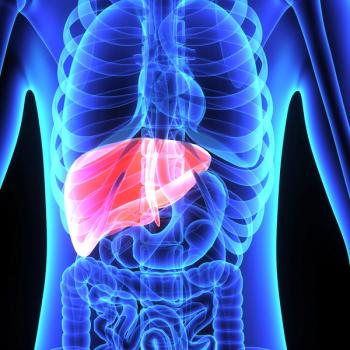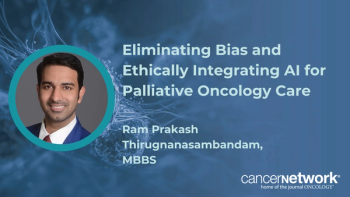
Laurence Albigès, MD, PhD, on Key Findings With Nivolumab/Cabozantinib in Advanced RCC
Laurence Albigès, MD, PhD, spotlighted 2-year follow-up data from the phase 3 CheckMate 9ER trial, which looked at nivolumab and cabozantinib in patients with previously untreated advanced or metastatic renal cell carcinoma.
Laurence Albigès, MD, PhD, a medical oncologist and head of the Genitourinary Unit at Gustave Roussy in Villejuif, spoke with CancerNetwork® during the
In the discussion, Albigès highlighted the continued overall survival (OS) benefit patients experienced following treatment with the combination. Patients also saw tumor shrinkage and a sustained progression-free survival benefit.
Transcript:
The CheckMate 9ER [regimen] is a strategy of combining a potent VGF TKI, namely cabozantinib, with an immune checkpoint, nivolumab. This dual approach has been developed because of different trials and it has demonstrated across many trials with different combination, an OS benefit over single agent sunitinib. What is important with the [CheckMate 9ER study] is that we now have seen the final OS analysis with more than 25 months minimum follow up and the median is around 32 months follow up.
What this final analysis shows us is [a continued] OS benefit was a hazard ratio of 0.70 [95% CI, 0.55-0.90] vs sunitinib [and] a progression-free survival [PFS] that is clear cut against sunitinib, meaning that we have a 2-fold longer PFS from 8.3 months to 16.6 months with cabozantinib plus nivolumab and a great benefit in terms of response rate. It’s clearly a combination that is able to induce tumor shrinkage and long-term PFS benefit, as well as OS benefit.
Reference
Powles T, Choueiri TK, Burotto M, et al. Final overall survival analysis and organ-specific target lesion assessments with two-year follow-up in CheckMate 9ER: Nivolumab plus cabozantinib versus sunitinib for patients with advanced renal cell carcinoma. J Clin Oncol. 2022;40(suppl 6):352. doi:10.1200/JCO.2022.40.6_suppl.352
Newsletter
Stay up to date on recent advances in the multidisciplinary approach to cancer.











































